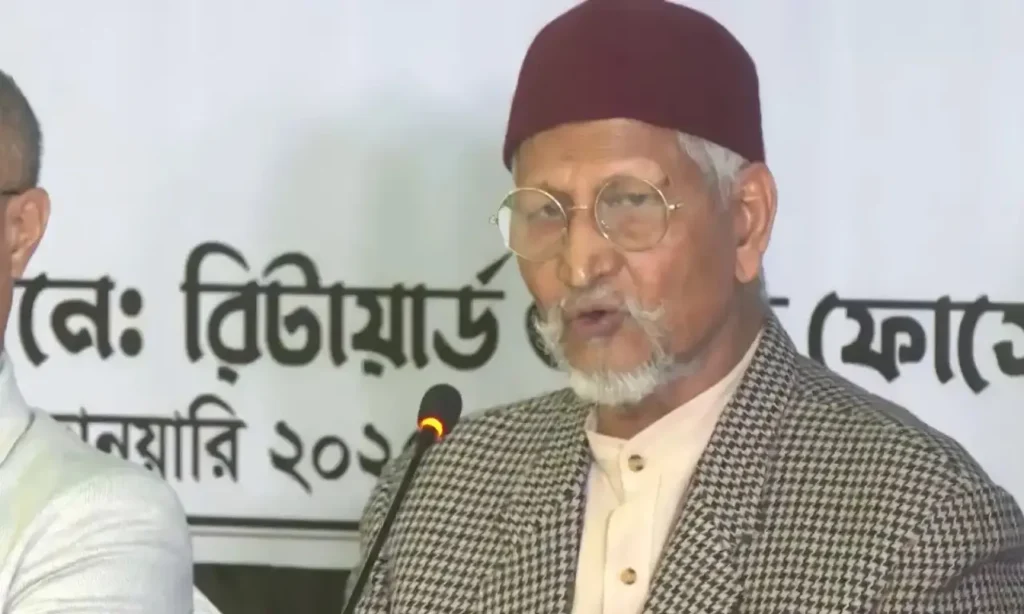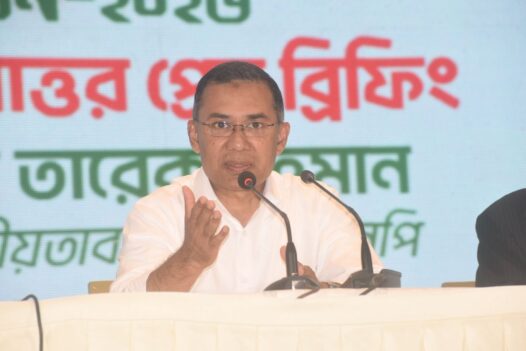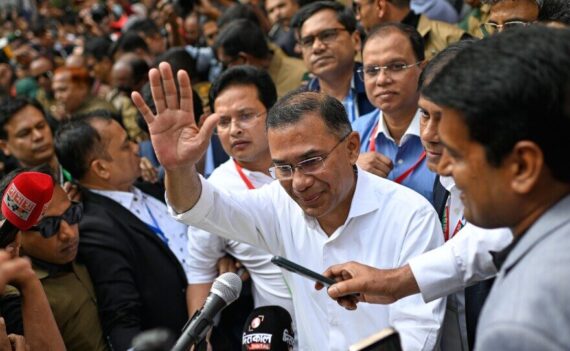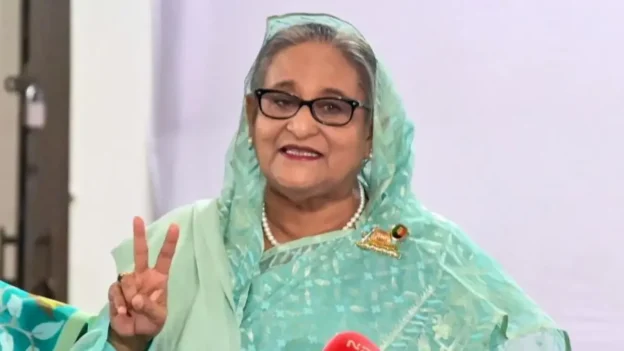Major General (Retd) A.L.M. Fazlur Rahman, a member of Bangladesh’s interim government, has made a deeply provocative call for Bangladesh to “occupy the seven states of Northeast India” with China’s backing—if India were to initiate military action against Pakistan. This incendiary statement, made via Facebook on Tuesday, has not only stoked regional anxieties but also revived haunting memories of Rahman’s dark legacy in India-Bangladesh border history.
Rahman, who served as the Director General of the Bangladesh Rifles (BDR) from 29 February 2000 to 11 July 2001, is infamously remembered in India as one of the chief architects of the gruesome killing of 16 Border Security Force (BSF) jawans at Boraibari along the Assam-Meghalaya-Bangladesh trijunction on 18 April 2001. That attack, following an incursion by BDR forces into the Indian village of Pyrdiwah in Meghalaya on 16 April, remains one of the most brutal cross-border incidents in India’s recent memory.
As journalists stationed in Shillong at the time, many of us witnessed the unfolding of events—first the occupation of the BSF outpost at Pyrdiwah, and then the horror that emerged from Boraibari. When then BSF Director General Gurbachan Jagat visited Tura in Garo Hills, he did not mince words: he publicly accused both the Bangladesh Army chief and Rahman of orchestrating a pre-planned offensive. Government sources later confirmed that this military manoeuvre had been preceded by consultations among divisional commanders of the Bangladesh Army in Mymensingh, Rangpur, and Chittagong.
TWENTY-FOUR years to date –
SIXTEEN #IndianBraves of 118 BN @BSF_India laid down their lives #OnThisDay 20 April in 2001 at Baraibari, Meghalaya #LestWeForgetIndia🇮🇳 The supreme sacrifice of our gallant border-men who fell to a dastardly attack by the erstwhile Bangladesh… pic.twitter.com/Q2xSdmMjiG
— LestWeForgetIndia🇮🇳 (@LestWeForgetIN) April 20, 2025
The scene from that April is etched in our memories—the mutilated bodies of 16 Indian soldiers, returned in small body bags, a stark reminder of the cruelty inflicted. The Indian side maintained that BSF personnel were lured into Bangladeshi territory and brutally tortured and killed. Bangladesh, on the other hand, claimed it was an act of self-defence against Indian intrusion.
That Rahman, who presided over this barbaric incident, now leads a commission to re-investigate the 2009 BDR mutiny under the current interim administration, raises eyebrows across South Asia. His recent public declaration advocating military action against India’s Northeast with Chinese support has introduced a new and volatile dimension to an already fragile regional situation.
His appointment by interim head Prof. Muhammad Yunus as chair of the National Independent Commission to probe foreign involvement in the 2009 BDR revolt—an event that led to the deaths of 74 people, including senior army officers—has been seen by many as an overtly political move. Rahman has long accused India of influencing Bangladesh’s internal affairs, including alleging Indian involvement in the 2009 mutiny. His re-emergence as a key voice in national policy has sparked concern both within Bangladesh and across the border.
Though, in a recent statement, Bangladesh Army Chief General Waker-Uz-Zaman warned against creating any confusion over the 2009 mutiny, asserting unequivocally that it was carried out by Bangladesh Rifles (BDR) soldiers. “No one should doubt it. Full stop. There are no ‘ifs’ and ‘buts’ here,” he declared at a commemorative event held in honour of the slain military officers who had served in the BDR during the revolt.
However, with Rahman now heading the Commission, critics of the Yunus government fear that “there is every possibility that Rahman may bring up the India bogey again just to vitiate the whole thing.” Given that he has previously called for attacks on India’s Northeast with China’s backing, policymakers in New Delhi are likely to be closely monitoring not only the proceedings of the Commission but also every move Rahman makes.
Rising tensions and widening faultlines
The timing of Rahman’s outburst is hardly coincidental. It comes amid heightened India-Pakistan tensions following the April 22 terror attack in Pahalgam Kashmir which claimed 26 lives. More significantly, New Delhi’s relations with Dhaka have grown tense after the ouster of Sheikh Hasina’s government—an administration known for its pragmatic engagement with India.
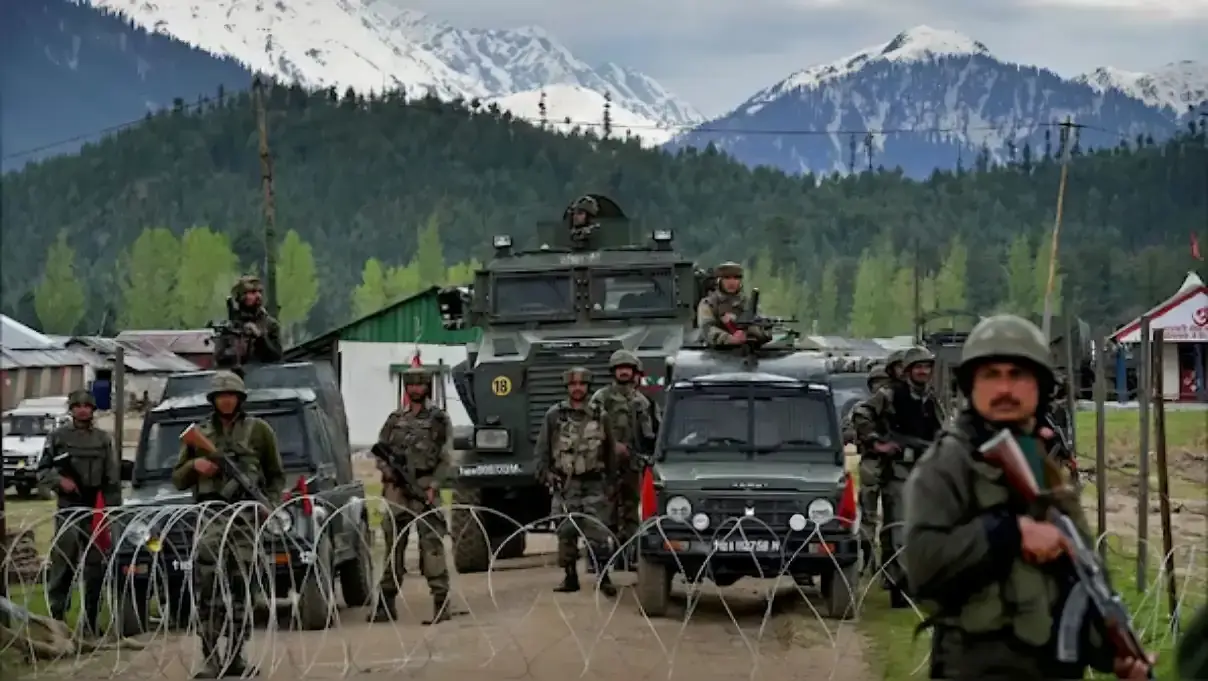
In recent weeks, interim government head Prof. Yunus himself provoked backlash by referring to India’s Northeast as “landlocked” and describing Bangladesh as the “guardian of the ocean” for the region—a loaded geopolitical insinuation, especially when paired with overtures to Beijing. Though Indian External Affairs Minister Dr. S. Jaishankar swiftly rebutted the remark—stating, “Cooperation is not about cherry-picking”—the sentiment has lingered, casting a shadow over India-Bangladesh diplomacy.
Even after a seemingly cordial meeting between Prime Minister Modi and Yunus at the recent BIMSTEC summit in Bangkok, Rahman’s comments have undone much of that diplomatic progress. But what’s striking is that many in Bangladesh are not buying into the narrative being spun by Rahman or others in the interim setup.
Always Prepared, Ever Vigilant – #IndianArmy pic.twitter.com/NIHWvWF9oM
— ADG PI – INDIAN ARMY (@adgpi) April 26, 2025
Internal discord in Bangladesh
Rahman’s remarks, while aggressive, have been widely criticised and mocked by Bangladeshi citizens, political commentators, and diaspora groups. Social media is awash with sarcastic responses, some dubbing him and Prof. Yunus as the “Keyboard Regiment Commander” and “Guardian of the Ocean” for their “fantasies about the Seven Sisters.”
A Facebook post by one user, Monjurul Haque, typifies the sentiment: “Dreaming of capturing the Seven Sisters? Time to look in your own backyard.” Others have posted memes showing Indian troop build-ups, referencing the recent Indian Cabinet Committee on Security (CCS) and Cabinet Committee on Political Affairs (CCPA) meetings in India as signs of the seriousness with which New Delhi views the evolving situation.
Social media users have also pointed out India’s readiness on the military front—especially in the Eastern Command covering West Bengal, Assam, Tripura, Meghalaya, Mizoram, and Manipur—highlighting troop mobilisation, forward deployment of fighter squadrons, and advanced air defence systems.
Critics within the Bangladesh Nationalist Party (BNP), Jamaat-e-Islami, and even a section of the Awami League have warned that the interim government is losing sight of Bangladesh’s internal crises while indulging in dangerous rhetoric. Discontent is also mounting among Islamist groups, including Hefazat-e-Islam and the Jatiya Olama Mashayekh Aemma Parishad, who oppose the Yunus government’s perceived liberalism, especially reforms such as the Women’s Affairs Reform Commission set up in November 2024. According to the Dhaka based Bangla daily Prothom Alo These groups have threatened massive street agitations, even invoking memories of the August 5 attack on Hasina’s residence as a warning.
The Prothom Alo quoted Mufti Syed Rezaul Karim, Amir of the Islamic Movement Bangladesh, starkly warned that if the government “moves forward,” it might not get “even five minutes to escape.” The allusion to the “five minutes” has resonated on the ground—and not in the way the interim government might have hoped.
A hard reality check
As Pakistan’s political and military elites reportedly flee to safer shores—Dubai, Canada, and the UK—Rahman’s calls for cross-border adventure seem disconnected from regional realities. On Bangladeshi social media, users are already speculating about Pakistan’s unwillingness or inability to commit fully to a war effort, given its own fractured internal state and regional divisions within the army.
Amid this backdrop, the Rahman-Yunus axis is viewed with deep suspicion, not just in New Delhi but also by many in Bangladesh. Indian officials are likely to watch every step taken by Rahman and the commission he now leads, especially if he tries to revive the “India bogey” during the 2009 mutiny probe.
As one user sarcastically concluded online:
“Dear Ocean Guardian, amidst all this looming turmoil, are you even aware that another kind of shell might soon land on your head?”
That’s the reality confronting the interim regime in Dhaka. There’s a world of difference between halting transshipment and stopping emergency food exports—and between rhetoric and realpolitik.

